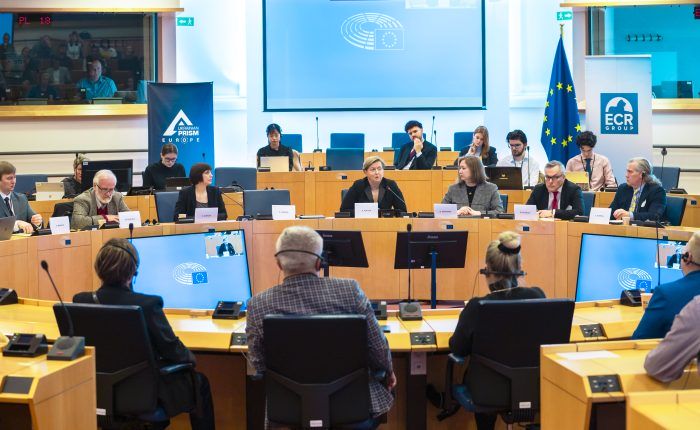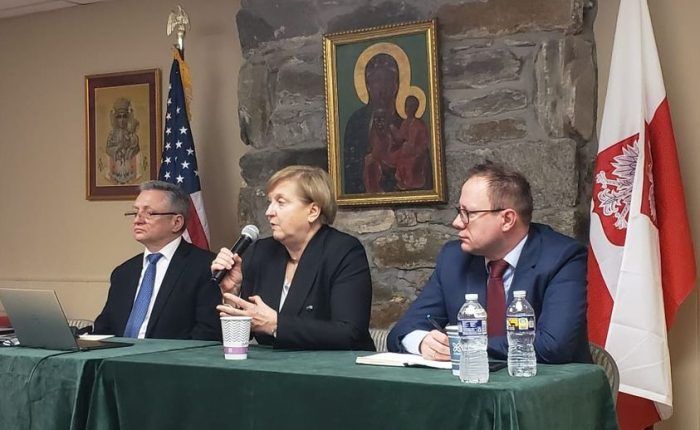Indivisible Security
In the second half of the 1940s, major steps were taken to finally consolidate the West in both military and economic terms. The creation of NATO on the 4th April 1949 and the provision of the ‘Marshall Plan’ for Europe are considered to be milestones on this path. During this same period, in Poland, armed partisan groups were engaged in combatting the communist regime imposed on us by the Yalta agreement. The last of those fighters were captured and killed by communists in October 1963. Our future was bleak despite the huge contribution in fight against Nazi Germany. In almost all of Central and East European (CEE) countries people continued to defy the USSR throughout the decades of the cold war.
We saw the prospect of a better future realised with the victory of Polish Solidarity and the subsequent collapse of the Berlin wall.
Nations of my region were jubilant not only after regaining their sovereignty, but also after the reaffirmation of this status by joining the NATO alliance. We were naturally aware of the ongoing diplomatic efforts vis-a-vis Russia. However, it was important that no third country was granted a veto right in NATO decisions. The principle of self-determination of sovereign nations as stipulated in fundamental UN and OSCE documents is still valid.
After years of meandering policies, despite Western efforts, Russia finally decided to go its own way. Russia openly disregarded international obligations, threatened territorial integrity of certain neighbouring countries such as – Ukraine and Georgia, as well as being engaged in social, economic or political destabilisation of many others. Most recently, this dubious activity is visible also in the place of our utmost concern – Syria.
Despite many years of NATO’s existence, due to Russia in the East and radical Islam from the South, we still face challenges to our security. During his recent visit to Warsaw (30 May 2016), Jens Stoltenberg, the Secretary General of NATO, underlined that during the Warsaw Summit, the Alliance will take decisions to strengthen its deterrence and defence, as well as step up efforts to project stability beyond its borders. Effective deterrence requires greater financial efforts, in particular from Europe. We have to dedicate even more than required by the already agreed expenditure goals. The cooperation between NATO and the EU may bring real added value, provided we, the Europeans, focus on the use of existing tools at our disposal. We are capable of preventing conflicts and introducing effective post-conflict rehabilitation by use of diverse meaures.
We, the NATO and EU countries must stand united in combatting terrorism, as after the Paris and Brussels terrorist attacks, the menace seems to be as palpable as ever.
Unity, both in practical and ideational terms, is necessary to tackle the challenges, as common perception of threats is still important for our societies. The Russian aggression in Ukraine changed the geopolitical situation in CEE. The people of this region have become sensitive to security issues and therefore support for both political and budgetary endeavours furthering military security has risen. One by one, countries of my region have launched national programs aimed at fulfilling NATO requirements. Countries like Poland and Estonia have already reached the NATO defence expenditures target. We are aware of the necessity to engage in peacekeeping and stabilisation operations in south, deployed within NATO, UN or EU formats. We have modernised our armies, we are training people in territorial defence tasks, but nevertheless, to be able to maintain this ambitious program we need to have a strong NATO presence in our part of Europe. Such measures will enable necessary empowerment of Europe in defence matters.
By Anna Fotyga MEP
Zapoznaj się z całą publikacją „NATO Warsaw Summit. Time to Act”



